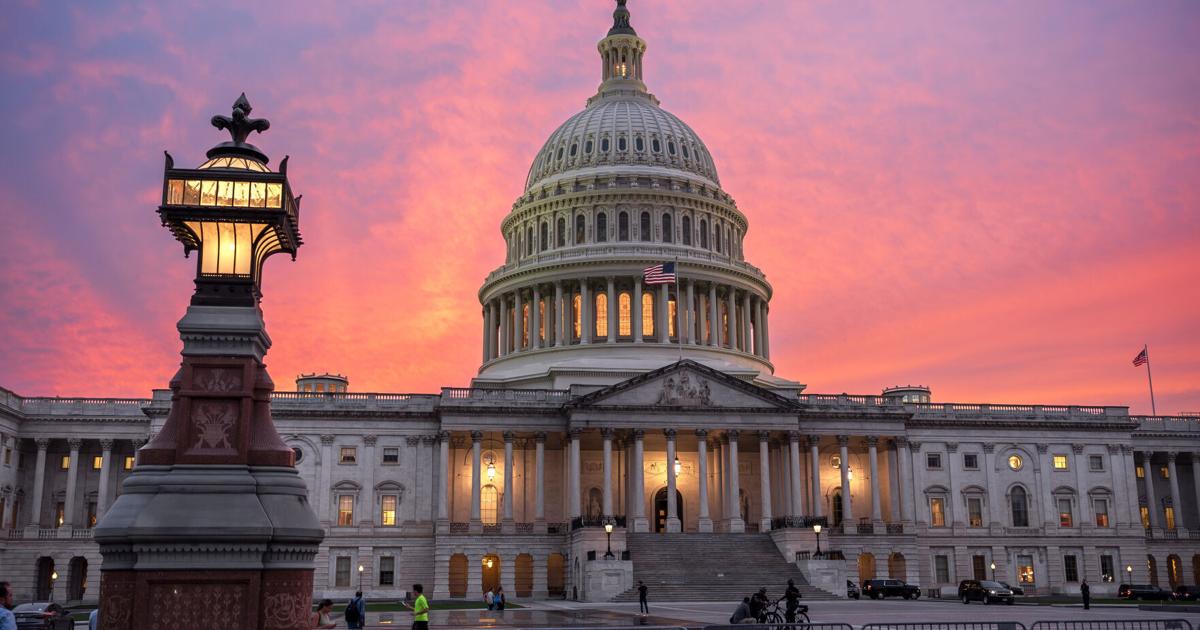
With a government shutdown underway, Quad-Cities entities are bracing for impact.
The shutdown became official at 12:01 a.m. on Wednesday, Oct. 1, after Senate Republicans and Democrats failed to come to an agreement. Republicans created a short-term plan to fund the government through Nov. 21, but Democrats voted it down, insisting the plan address their concerns on health care, according to the Associated Press.
The last government shutdown happened during President Donald Trump’s first term and was the longest shutdown on record. It lasted 35 days from Dec. 2018 until Jan. 2019. Prior to that, the government shut down for three days in January 2018, also during Trump’s first term.
A shutdown also occurred for 16 days in October 2013 during the Obama administration, for three weeks from Dec. 1995 to Jan. 1996 during the Clinton administration and multiple times throughout the 1970s and ’80s during the Carter and Regan administrations, according to the AP.
In a Zoom call Wednesday morning, Democratic U.S. Rep. Eric Sorensen, who represents the Illinois Quad-Cities, said the shutdown did not have to happen and blamed Republicans for their refusal to budge on the health care issue as the reason for the shut down.
He went on to say Trump would rather shut down the government than address the health care crisis in the country. Sorensen said he would never agree to health care cuts himself, and wanted to find a solution to keep the government open. Republicans, he said, were not willing.
However, Republicans and some government entities are instead blaming Democrats for the shutdown.
U.S. Rep. Mariannette Miller-Meeks, the Republican who represents the Iowa Quad-Cities, blamed Senate Democrats for not passing a the resolution that passed the House. Her office posted an FAQ on the shutdown on her House website.
“This was a clean, straightforward extension of existing funding without extraneous policy,” the post said. “Unfortunately this proposal did not pass the Senate, as Senate Democrats blocked the measure and shutdown the government.”
TSA, the security arm for airports, released a statement blaming “left-wing politicians” for the shutdown, which in turn affects funding.
“Beginning midnight Oct. 1st, funding for much of the federal government will have expired due to the partisan politics of left-wing politicians. While it is unfortunate some of our politicians have put politics before the well-being of our country, TSA is prepared for an orderly shutdown,” a TSA spokesperson said in a statement.
Approximately 61,000 of the agency’s 64,000 employees are considered excepted or exempt from the shutdown, and TSA will continue operations. The remaining employees will be temporarily furloughed, according to the spokesperson.
During the shutdown, federal agencies have to stop activity and furlough non-excepted employees. Excepted employees will be required to work but not receive a paycheck until after the shutdown ends.
Excepted employees include federal workers for TSA and air traffic control at the Quad Cities International Airport, but a spokesperson for the airport said operations are expected to continue as usual.
Impacts to food programs
The shutdown also affects government funded programs like SNAP, which already faced cuts earlier this year due to Trump’s tax and spending reconciliation bill. Coupled with the news of a government shutdown, local food banks continue to worry about the impact this will have on communities.
SNAP, short for Supplemental Nutrition Assistance Program, is federally funded, with the money passed down to the state and then to the individuals. Because the shutdown happened on the first of the month, when SNAP benefits are typically distributed, consumers are presumed safe from being affected for the month of October, as the money was already disbursed.
However, should the shutdown persist, River Bend Food Bank CEO Chris Ford said, consumers who normally rely on SNAP will most likely turn to food banks who are already facing funding woes. For every one meal River Bend can provide, he said, SNAP provides nine. Ford said it is the “most effective tool the nation has for food insecurity.”
It complicates a situation already complicated by federal budget cuts. In early March, the United States Department of Agriculture cut two federally funded programs that provided food assistance to schools and food banks, which meant River Bend lost about $515,000 worth of food it was planning on.
River Bend buys USDA commodities, financed through the federal government. Orders already placed and paid for are expected to be delivered on time, Ford said, but should the shutdown stretch into November, it’s unknown what would happen.
“The USDA is shut down, and because the USDA is shut down, that prohibits food banks from being able to order the monthly commodities we depend on,” Ford said.
The food is part of The Emergency Food Assistance Program, which provides food assistance for low income individuals. The way the program works, Ford said, is the state will issue a catalogue of available food and the food bank will order from it three to six months in advance.
“Once we tell the state what we want, the state has to place the order, and that order has to get confirmed and purchased in the system,” Ford said.
So far, what has already been purchased is coming to the food bank. But the items not purchased or confirmed are in jeopardy of either being delayed, or cut entirely.
“On any given month the TEFAP food could be anywhere between 25-35% of the food we distribute. There is certainly concern that losing that for an extended period of time would be a blow to all food banks,” Ford said.
Rock Island Arsenal’s status
Locally, the status of employees on the Rock Island Arsenal is also in question during the government shutdown. A representative on the island said due to the varying ways civilian employees are funded at each organization on the Arsenal, they could not answer how the shut down affected the factories or how the Army Corps of Engineers would handle barge traffic.
“The public will still be able to access the installation and take part in MWR (Morale Welfare and Recreation) activities that will operate normally as they are non-appropriated fund activities. Additionally, the U.S. Army Garrison-Rock Island Arsenal will continue to deliver life, health, and safety services for those working and living on the installation during the shutdown,” a statement read.
The National Weather Service
The National Weather Service, which has a station in the Quad-Cities, is also affected by the shutdown, stating on its website all tours and outreach activities have been canceled for the time being.
“The NWS will continue to provide critical forecast, watch and warning information to protect life and property throughout the shutdown,” read a statement on the NWS website.
Love
0
Funny
0
Wow
0
Sad
0
Angry
0
Get Government & Politics updates in your inbox!
Stay up-to-date on the latest in local and national government and political topics with our newsletter.
* I understand and agree that registration on or use of this site constitutes agreement to its user agreement and privacy policy.
Gretchen Teske
Get email notifications on {{subject}} daily!
Your notification has been saved.
There was a problem saving your notification.
{{description}}
Email notifications are only sent once a day, and only if there are new matching items.
Followed notifications
Please log in to use this feature
Log In
Don’t have an account? Sign Up Today



